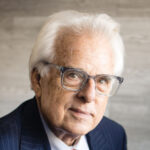Centralized health care destroys professionalism in medicine. It takes well-meaning approaches to difficult cases, and turns it into a connect-the-dots enterprise that treats patients as members of categories rather than individuals.
As I have written frequently here and elsewhere, the Liverpool Care Pathway — which was designed to humanize end-of-life care in NHS hospitals and nursing homes — was subjected to precisely that kind of deconstruction. As psychiatrist Eugene Breen writes in the British Medical Journal:
There is no quality control or accountability and there are no penalties. You can hear people say “the mother in law doesn’t look too good, I wonder if she is dying? We ought to get her as quickly as possible to that pathway to get her the best accredited care.” This is the problem. It is a free for all and it is euthanasia lite. The fast forwarding of dying saves money, brings closure, and frees up relatives’ time and suffering, but it disrespects patients’ basic rights to life and dignity. It is impossible to control such a programme with any respectable level of professionalism or care for the person involved.
Bingo.
Author Profile

Latest entries
- BlogJanuary 27, 2015Ready or Not: Here Comes 2015 in Bioethics!
- BlogOctober 20, 2014A Case of Surrogacy’s Gordian Knot
 BlogAugust 19, 2014Transhumanism’s Eugenic Authoritarianism
BlogAugust 19, 2014Transhumanism’s Eugenic Authoritarianism- BlogAugust 13, 2014Suicide Cult Pushes Home Made Suicide Kits

